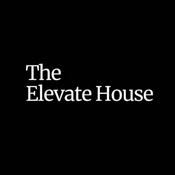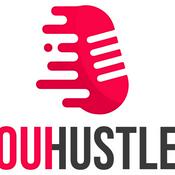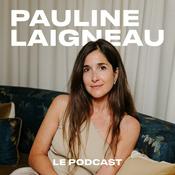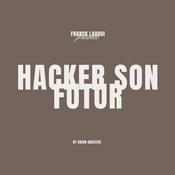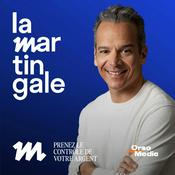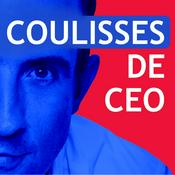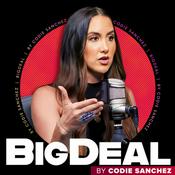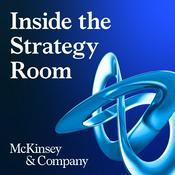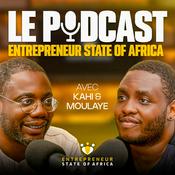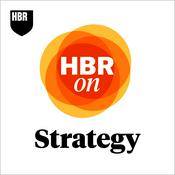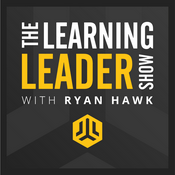490 épisodes
- You asked, we answered.
On today’s show, we tackle questions from our dear listeners on whether AI interviewers are biased, what the heck M2 money supply is, and what’s up with the frenzied mobs fighting for rotisserie chickens at the grocery store.
Related episodes:
When AI is your job interviewer
How beef climbed to the top of the food pyramid
Retirement luck, Hassett hassles the Fed, and boneless chicken in ... court?
Behind the Tiny Desk and other listener questions
For sponsor-free episodes of The Indicator from Planet Money, subscribe to Planet Money+ via Apple Podcasts or at plus.npr.org.
Fact-checking by Sierra Juarez. Music by Drop Electric. Find us: TikTok, Instagram, Facebook, Newsletter.
Learn more about sponsor message choices: podcastchoices.com/adchoices
NPR Privacy Policy - The Supreme Court struck down a bunch of President Trump’s tariffs yesterday. The Trump administration originally used an emergency economic powers law to justify the tariffs. And the court said: No! You can’t do that! Bad Trump, bad! This is despite the U.S. having raked in over a hundred billion dollars in import taxes already.
On today’s show, unpacking the Supreme Court’s blockbuster tariffs decision. What’s next for tariffs? And … are we getting tariff refunds? Asking for a friend.
Related episodes:
Trump's backup options for tariffs
Tariffied! We check in on businesses
Are Trump's tariffs legal?
Worst. Tariffs. Ever.
For sponsor-free episodes of The Indicator from Planet Money, subscribe to Planet Money+ via Apple Podcasts or at plus.npr.org. Fact-checking by Sierra Juarez and Vito Emanuel. Music by Drop Electric. Find us: TikTok, Instagram, Facebook, Newsletter.
Learn more about sponsor message choices: podcastchoices.com/adchoices
NPR Privacy Policy - It’s … Indicators of the Week! Our weekly look at some of the most fascinating economic numbers from the news.
On today’s episode: Why you better hope you retire at juuuust the right time, why the researchers at the Federal Reserve are being scolded by a White House economic advisor, and taking boneless chicken to court.
Related episodes:
Chicken meat, Gulf of Mexico lawsuit and Social Security beyond the grave
Davos drama, credit card caps and tariff truths
What would it take to fix retirement?
For sponsor-free episodes of The Indicator from Planet Money, subscribe to Planet Money+ via Apple Podcasts or at plus.npr.org. Fact-checking by Sierra Juarez and Corey Bridges. Music by Drop Electric. Find us: TikTok, Instagram, Facebook, Newsletter.
Learn more about sponsor message choices: podcastchoices.com/adchoices
NPR Privacy Policy - The Trump administration is planning to pour more than $38 billion into warehouses for mass immigrant detention. While some communities are starting to push back, one rural town has agreed to expand its detention facility. On today’s show, we visit a small town in Georgia to learn about the trade-offs of becoming a detention town.
Related episodes:
How well are ICE’s 12,000 new officers being trained?
How ICE crackdowns are affecting the workforce
For sponsor-free episodes of The Indicator from Planet Money, subscribe to Planet Money+ via Apple Podcasts or at plus.npr.org. Fact-checking by Sierra Juarez. Music by Drop Electric. Find us: TikTok, Instagram, Facebook, Newsletter.
Learn more about sponsor message choices: podcastchoices.com/adchoices
NPR Privacy Policy - The Department of Homeland Security says it has more than doubled the workforce of Immigration and Customs Enforcement under President Trump. Yet videos of immigration officers killing two U.S. citizens and using aggressive arrest tactics have left some politicians and community leaders rethinking the agency’s approach. On today’s show, law enforcement experts assess the training and culture at DHS.
Related episodes:
How ICE crackdowns are affecting the workforce
For sponsor-free episodes of The Indicator from Planet Money, subscribe to Planet Money+ via Apple Podcasts or at plus.npr.org. Fact-checking by Sierra Juarez. Music by Drop Electric. Find us: TikTok, Instagram, Facebook, Newsletter.
Learn more about sponsor message choices: podcastchoices.com/adchoices
NPR Privacy Policy
Plus de podcasts Business
Podcasts tendance de Business
À propos de The Indicator from Planet Money
A bite-sized show about big ideas. From the people who make Planet Money, The Indicator helps you make sense of what's happening in today's economy. It's a quick hit of insight into money, work, and business. Monday through Friday, in 10 minutes or less.
Site web du podcastÉcoutez The Indicator from Planet Money, The Elevate House ou d'autres podcasts du monde entier - avec l'app de radio.fr

Obtenez l’app radio.fr gratuite
- Ajout de radios et podcasts en favoris
- Diffusion via Wi-Fi ou Bluetooth
- Carplay & Android Auto compatibles
- Et encore plus de fonctionnalités
Obtenez l’app radio.fr gratuite
- Ajout de radios et podcasts en favoris
- Diffusion via Wi-Fi ou Bluetooth
- Carplay & Android Auto compatibles
- Et encore plus de fonctionnalités


The Indicator from Planet Money
Scannez le code,
Téléchargez l’app,
Écoutez.
Téléchargez l’app,
Écoutez.


